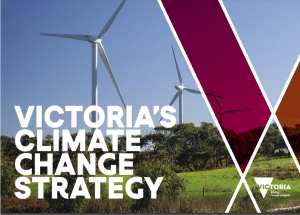Victoria is rapidly emerging as a leader in solar energy, with over 700,000 homes expected to have solar panels by 2024. As more residents turn to solar energy in Victoria, households benefit from reduced electricity bills and a lower carbon footprint. With increasing interest in battery storage—now included in about 12% of new installations—Victorians are maximising the potential of their Victoria solar systems, reducing their reliance on the grid and contributing to a more sustainable future.
Businesses across Victoria are also taking advantage of solar energy to reduce operational costs and meet sustainability goals. The Victorian government offers various incentives to support solar adoption, making it easier for residents to access affordable options. Energy Matters provides free solar quotes, helping people find the best solar deals Victoria has to offer. With government backing and a growing commitment to clean energy, solar power in Victoria is a smart, long-term investment for both homes and businesses.
Get Solar Quotes from up to 3 Local Installers in VIC
Step 1: Fill out our easy-to-follow quote form, and we’ll match you with trusted local installers.
Step 2: Up to 3 local installers will contact you by phone or email to provide further details and their best offers.
Step 3: All quotes are free and carry no obligation, allowing you to choose the best option that fits your needs and budget.

On this page
Are solar panels a smart investment? How much can you save?
If you’re wondering whether solar panels are worth the investment for Victorians, the answer is absolutely yes. In 2024, solar energy remains one of the smartest investments, with homeowners in Victoria saving an average of 30% on their energy bills compared to those relying solely on the grid. Solar installations are now more affordable and accessible than ever. Whether you’re in Melbourne, Geelong, Ballarat, or regional Victoria, you can take advantage of government subsidies and the best solar deals. Get your free solar quotes today at Energy Matters.
How much do solar panels cost in VIC?
The cost of installing solar panels in VIC varies depending on system size, installation complexity, and brand choice. As of October 2024, homeowners in Victoria can expect to pay around $4,150 for a 4kW system, $4,630 for a 5kW system, $5,200 for a 6kW system, $6,070 for a 7kW system, and $7,850 for a 10kW system. These prices include standard installation, the STC discount, and GST. Larger systems generally provide greater long-term savings, especially for households with higher energy consumption.
The chart below outlines the typical costs for various solar system sizes in Victoria, giving a clear understanding of current market rates.
Figures are accurate as of October 2024. Source: Solar Choice – October 2024 solar price index. Your solar system price will vary according to your location, installer, products, and any deals or discounts provided by your retailer. All prices are to be used as a guide.
“I got 3 very competitive quotes and the installer I went with removed the old solar system and professionally installed a brand new one that has been working very well for a number of months now. Very happy with the service and so glad I decided to give solar a second chance.”
Margaret
“The process from start to finish was easy and quick! I completed the solar quote quiz and was contacted by 2 local installers within a week. I had solar and a battery installed within a month and I’ve been saving ever since! cannot recommend these guys highly enough!”
Robert Long
“I called Energy Matters to get a quote on the Friday, and by Monday I had 3 quotes from 3 installers in my area. One of the consultants even called me late on Saturday at my request. The installers we went with were professional, friendly and polite. Thanks Energy Matters for helping me find the best deal, and for your help understanding the rebates.”
Alisha
VIC solar panels: An investment with great returns
For a 6.6kW solar system in Victoria, homeowners can expect to save between $1,100 and $1,500 annually, depending on electricity usage and whether they use battery storage. This is based on the current Victorian feed-in tariff (FiT), which ranges between 5.2 and 12 cents per kilowatt-hour (kWh).
For a larger 10kW system, annual savings can reach $2,000 to $2,700, particularly for homes with higher self-consumption or those on time-of-use tariffs. Both system sizes offer substantial savings, making solar energy a smart investment for homes across Victoria.
VIC rebates and incentives
Victorian residents and businesses can benefit from a range of state and federal incentives and rebates, including:
- Small-scale Technology Certificates (residential and small-medium businesses)
- Large-scale Generation Certificates (large businesses)
- Feed-in Tariffs
- Solar rebates
- Battery loans (now closed)
- Victorian Energy Upgrades program
Find out more about these programs and initiatives via the button below.
Energy efficient products and upgrades
Upgrade your outdated appliances and products to the latest energy-efficient technology. Your hot water system, heating and cooling units, and other household devices could be costing you thousands each year. By replacing them, you can save significantly while lowering your environmental impact.
In Victoria, a solar hot water system can save households between $200 and $800 annually on energy bills, depending on hot water usage and system type. These systems use solar energy to heat water, reducing reliance on electricity or gas, making them a cost-effective and eco-friendly option.
Victorians can benefit from the very generous Victorian Energy Upgrades (VEU) program which provides financial incentives to upgrade a range of energy efficient products.
VIC solar batteries: The future of renewable energy
In Victoria, 12% of all new solar systems installed in 2024 included battery storage. By adding a battery to your solar setup, you can enjoy power savings around the clock. Not only do solar panels and batteries enhance your home’s value, but they also reduce your energy bills and increase your energy independence from the grid.
Batteries are often considered the future of energy, allowing you to store solar power generated during the day for use at night or on cloudy days when sunlight is limited. In fact, incorporating a battery with a residential solar system can potentially double your self-consumption of generated electricity.
Maximise your battery’s potential by joining a Virtual Power Plant (VPP). This initiative can shorten the payback period for your battery investment and provide additional income by selling your stored energy back to the grid during peak demand periods. To learn more about the Origin Loop VPP, visit our page.
Victorians are buying Electric Vehicles (EVs) at record rates! Are you EV ready?
Did you know that approximately 50% of Australians are considering purchasing an electric vehicle (EV) within the next five years? In Victoria, installing a home battery not only provides the flexibility to charge your EV overnight but also allows you to sell any excess stored electricity back to the grid. This means you can choose the best option for your needs, depending on your lifestyle and the prevailing feed-in tariff.
With residential EV charging, you can transform your home into a personal charging station, significantly reducing your vehicle costs and increasing your convenience. The growing EV market in Victoria, where EVs accounted for 3.4% of all vehicle sales in 2022, reflects a positive shift towards sustainable transport options.
Now is a great time to explore how solar and battery solutions can enhance your energy independence and support the shift towards electric vehicles.
Making solar simple
We recognise that concerns about potential hassles can be a significant barrier to going solar. At Energy Matters, our partners are dedicated to creating customised solutions that meet your specific needs and support you throughout the entire process. No matter where you are in Victoria, you can easily request up to three quotes from reliable local installers who are ready to discuss your requirements and address any questions you have about transitioning to solar energy.
Explore your options today and take the first step towards a more sustainable future!
VIC solar and battery FAQs
Solar panels provide significant savings on electricity bills, reduce reliance on the grid, and contribute to a more sustainable environment. Homeowners can additionally save an estimated $300 to $700 per year with solar hot water systems
As of October 2024, homeowners can expect to pay around $5,500 for a 6.6kW solar system in Victoria. Prices vary based on the system size and installation complexity, with larger systems typically offering greater long-term savings
Yes, the Victorian Government offers several incentives, including rebates and feed-in tariffs. Homeowners can receive a rebate of up to $1,400 for eligible solar panel installations, making solar energy more accessible. The Victorian Battery Loans program ended in June 2025.
A feed-in tariff compensates solar energy system owners for the electricity they generate and feed back into the grid. In Victoria, the current FiT is between 4.5 and 6.8 cents per kilowatt-hour (kWh
Solar batteries store excess energy generated during the day for use at night or during cloudy days. This maximises self-consumption of solar power and helps reduce reliance on grid electricity
Most solar panels have a lifespan of 25 to 30 years, while batteries typically last around 10 to 15 years. Investing in quality products with warranties can ensure long-term performance
Yes, installing solar panels and batteries together is a common practice. This combination allows homeowners to store excess solar energy for use when the sun isn’t shining, enhancing energy independence
Look for installers who are accredited by the Clean Energy Council (CEC) and have positive customer reviews. Requesting multiple quotes and discussing your specific needs can also help you find the right installer. Energy Matters is here to help with our FREE quote service which connects you with up to 3 local and trusted solar installers.
VIC news and updates
Keep up to date with the latest renewable news and updates from Victoria.










































